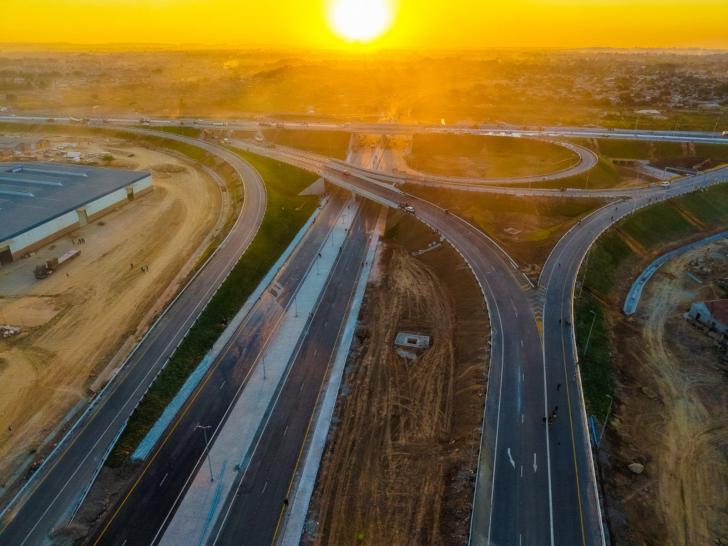News / National
Trabablas Interchange cost US$114.3 million, not US$88m
11 hrs ago | Views

Finance Minister Mthuli Ncube has revealed that the cost of the recently completed Trabablas Interchange in Harare was significantly higher than previously reported, confirming the total expenditure amounted to US$114.3 million - a US$26.3 million increase from the widely cited US$88 million.
The announcement has sparked widespread debate and surprise, as the project had been officially launched and praised as a US$88 million infrastructure milestone.
Speaking during a recent address, Ncube clarified that the project was funded in two parts. The bulk of the financing - US$88 million - was secured through a loan facility. However, an additional US$26.3 million was drawn from Zimbabwe's allocation of International Monetary Fund (IMF) Special Drawing Rights (SDRs), bringing the total cost to US$114.3 million.
Initially, the minister had claimed that the US$26.3 million served only as a deposit to activate the loan facility, implying it would not be part of the actual construction costs. However, he later revised this explanation, admitting that the money was used to address unforeseen costs that arose during the project's implementation.
According to Ncube, these unforeseen costs included the relocation of residents, utilities, and services affected by the massive road construction - expenses that were not factored into the original project budget.
"This money was not part of the main construction works at the start," Ncube explained. "The US$26.3 million was ultimately required to manage unavoidable additional expenses related to the relocation of people and infrastructure, which became necessary as the project progressed."
The disclosure has raised new questions about government transparency in infrastructure spending, especially as public scrutiny of large capital projects intensifies amid economic hardship.
The Trabablas Interchange, commissioned by President Emmerson Mnangagwa on May 30, was hailed as a flagship development meant to ease congestion and modernise the capital's transport network. But the revised price tag has left many Zimbabweans questioning whether proper budgeting and cost-control measures were followed.
As debate over the true cost of the interchange continues, critics are calling for greater public accountability and independent audits of large infrastructure projects to avoid the recurrence of such significant cost overruns.
The announcement has sparked widespread debate and surprise, as the project had been officially launched and praised as a US$88 million infrastructure milestone.
Speaking during a recent address, Ncube clarified that the project was funded in two parts. The bulk of the financing - US$88 million - was secured through a loan facility. However, an additional US$26.3 million was drawn from Zimbabwe's allocation of International Monetary Fund (IMF) Special Drawing Rights (SDRs), bringing the total cost to US$114.3 million.
Initially, the minister had claimed that the US$26.3 million served only as a deposit to activate the loan facility, implying it would not be part of the actual construction costs. However, he later revised this explanation, admitting that the money was used to address unforeseen costs that arose during the project's implementation.
"This money was not part of the main construction works at the start," Ncube explained. "The US$26.3 million was ultimately required to manage unavoidable additional expenses related to the relocation of people and infrastructure, which became necessary as the project progressed."
The disclosure has raised new questions about government transparency in infrastructure spending, especially as public scrutiny of large capital projects intensifies amid economic hardship.
The Trabablas Interchange, commissioned by President Emmerson Mnangagwa on May 30, was hailed as a flagship development meant to ease congestion and modernise the capital's transport network. But the revised price tag has left many Zimbabweans questioning whether proper budgeting and cost-control measures were followed.
As debate over the true cost of the interchange continues, critics are calling for greater public accountability and independent audits of large infrastructure projects to avoid the recurrence of such significant cost overruns.
Source - online





































